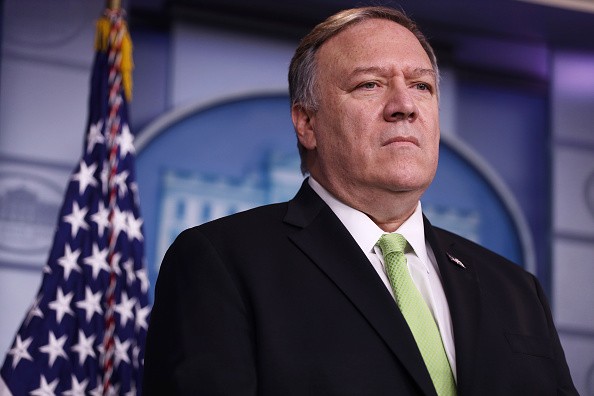US Formally Withdraws From Open Skies Treaty
The United States government has formally withdrawn from the Open Skies Treaty as Russia remains in non-compliance.
Secretary of State Michael Pompeo confirmed the news on Sunday, said a report from Bloomberg.

As reported by Al Jazeera, the U.S. Department of State spokesman noted that six months had passed since the U.S. notified other countries that it was withdrawing from the Open Skies Treaty.
The treaty is an agreement among 34 participating countries to foster trust by allowing them to observe one another's militaries through unarmed flyovers.I
t includes a "passive quota" that specifies the maximum number of observation flights that can occur within each nation yearly and an "active quota" that set out the maximum number of observation flights each one can conduct each year.
An inspection should be conducted on an aircraft that will be used for an Open Skies flight. Personnel representing the country, which the craft will fly over, must also have to be on-board the flight.
Pompeo Claims US 'More Secure' with Open Skies Withdrawal
In a tweet, Pompeo said said the country is "more secure" because of the withdrawal and added that Russia "remains in non-compliance with its obligations."
Russia has faced accusations of violating the treaty multiple times by blocking surveillance flights around certain areas. Some of these areas include the Russian enclave of Kaliningrad and the border with Georgia.
Russia has also denied flights over Russian military exercises, said reports.
Some critics think withdrawing from the treaty will have a significant blow on the country's allies. But Moscow appeared to be more interested in aerial surveillance of European states than the U.S.
Open Skies Treaty Withdrawal a 'Blow' for Arms Control
On Twitter, a non-resident fellow at the Brookings Institution's Arms Control and Non-Proliferation Initiative, Steven Pifer, said dropping from the treaty was "one more blow" to arms control.
Pifer called on Democratic presidential nominee Joe Biden to rejoin the treaty if election projections align with official results.
Read also: Trump Reverses 'Ridiculous' Cancellation of Wreaths Across America Event at Arlington Cemetery
In his article on Brookings, Pifer said that the Open Skies Treaty has "several advantages" despite some setbacks.
Under the treaty, the country's allies and partners could be given sophisticated imagery satellites, which they may lack, or the opportunity to gather confidence-building data.
Pifer added that aircraft could provide "greater flexibility" than satellites when it comes to arms control. Other than that, flights can also be used by the U.S. as political statements.
Pifer's opinion was echoed by Biden, saying in May that even though Russia had some violations, the U.S. can "benefit" from the Open Skies Treaty.
He noted in his earlier statement that the country's allies made it clear that they want to stay in the Treaty and to work together in getting compliance from Russia.
"Without us, the Treaty could crumble. Withdrawal will exacerbate growing tensions between the West and Russia, and increase the risks of miscalculation and conflict," Biden said.
The Open Skies Treaty was signed almost three decades ago and took effect in 2002. It intends to reduce the risk of war among its three dozen ratifiers.
Subscribe to Latin Post!
Sign up for our free newsletter for the Latest coverage!











